Cameron Russell Is Unafraid

"Hearst Magazines and Yahoo may earn commission or revenue on some items through these links."
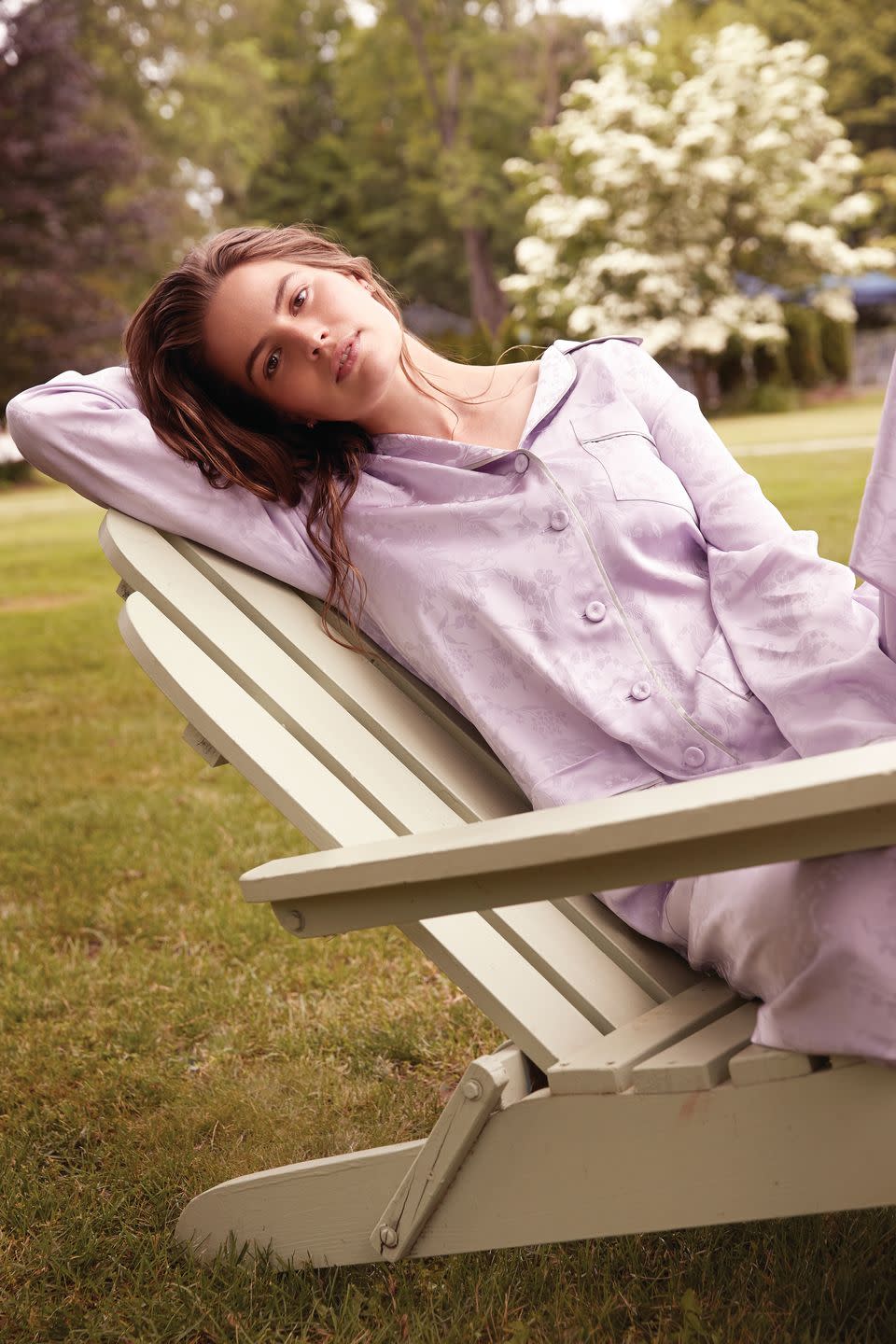
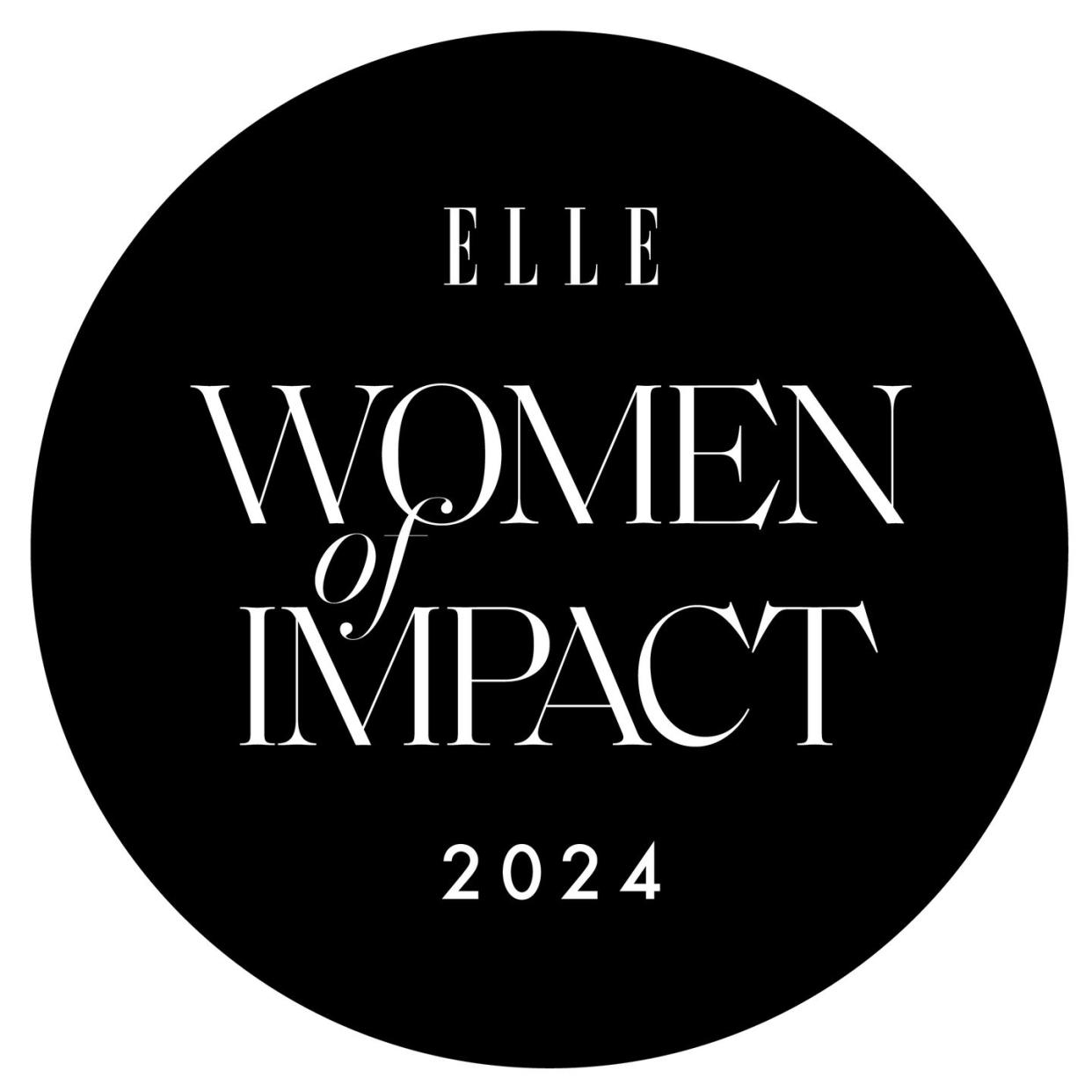
Not long after Cameron Russell traveled to New York to meet with a modeling agent, her rep called her back to tell her she’d booked a job. Russell was 16 and supposed to be in class, but the gig paid $5,000. Her mother made plans for her to call in sick, she remembers in her candid and beautiful new memoir, How to Make Herself Agreeable to Everyone: “A day of school could never be worth more than five thousand dollars.”
Minus the expense of travel and a night in a cheap model apartment, that job netted Russell $4,900. In the book, she recalls thinking about that number for most of the ride from her native Cambridge, Massachusetts, to New York. In her planner, she wrote out an equation: How long would it take a minimum-wage worker to earn the check she will get for a single photo shoot?
There are teenagers who would be nervous about posing for pictures and others who would be excited about the prospect of fame and success, but Russell was the kind of teenager—and remains the kind of woman—who does the math: Who gains when people like her get ahead? And who loses?
More opportunities followed the shoot. Russell has walked for brands like Chanel, Louis Vuitton, and Bottega Veneta. She has appeared in countless magazines, including this one. She did the normal supermodel stuff: J.Crew catalogs, major ad campaigns, commercials. She also did some less normal supermodel stuff: She enrolled at Wellesley College and later transferred to Columbia University, where she majored in economics and political science. She delivered a TED Talk titled “Looks Aren’t Everything. Believe Me, I’m a Model,” which became one of the organization’s most-watched speeches. She used her Instagram as a platform to share stories when the #MeToo movement was just kicking off and helped draw attention to vicious inequities and abuse within the fashion world.
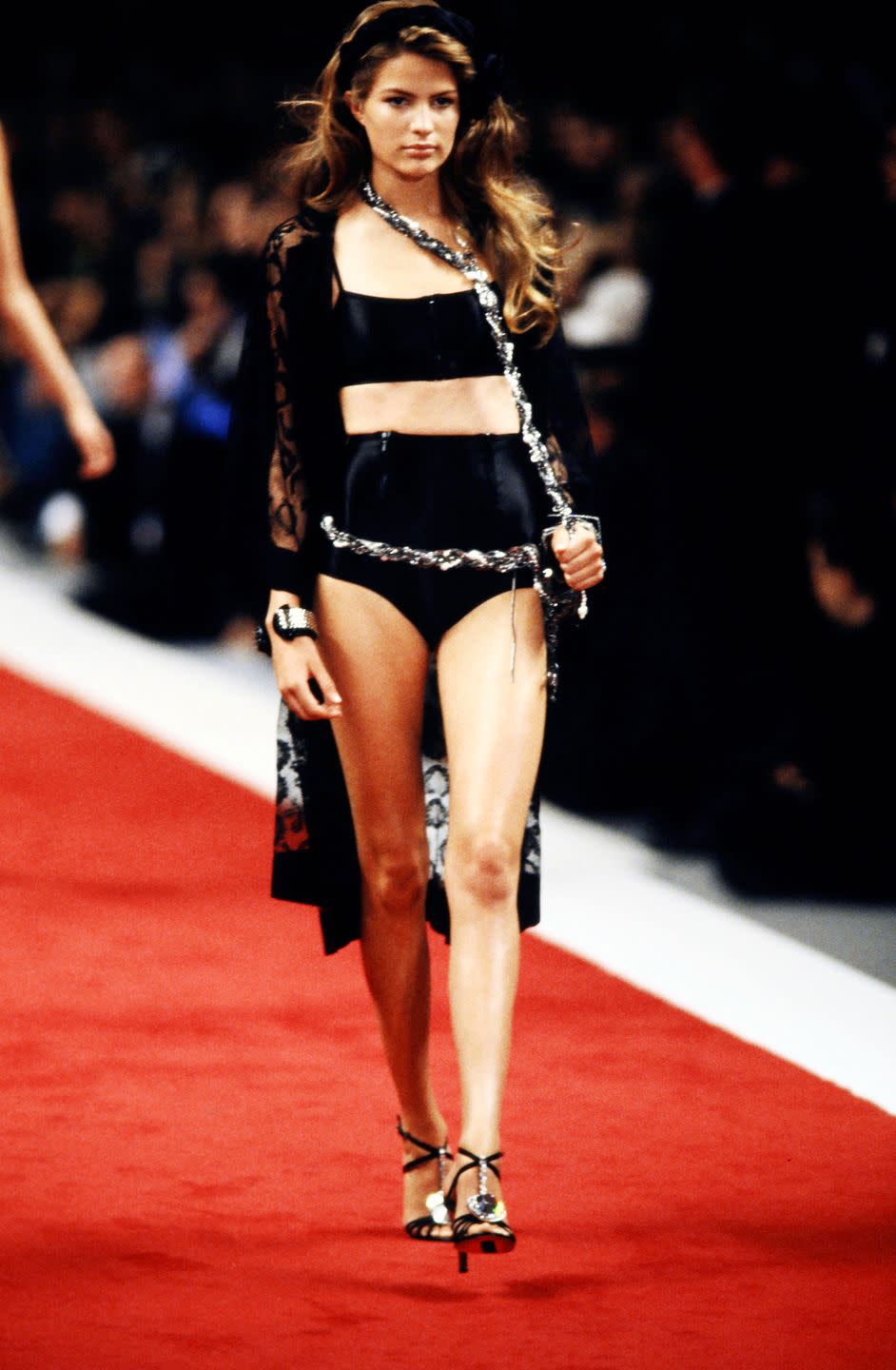
Now Russell is a climate activist, a dedicated organizer, and an author. How To Make Herself Agreeable to Everyone is less linear tell-all than sweeping meditation on power, beauty, complicity, exploitation, and control. It’s a confrontational critique of the business that made Russell a star, but it doesn’t exonerate its writer either. Russell scrutinizes her own efforts to please photographers and fashion power brokers at the expense of her values, and she documents what happened after she stopped. She wonders: Is it possible to integrate her identities as a model and an organizer? Can she (can we) participate in a capitalist marketplace and at the same time work to dismantle it?
“I tried to write the book and be transparent about these choices,” Russell explains. The tradeoffs, the ambiguities, the equivocations—she addresses all of them. But she knows that some readers will see in her deliberations a kind of excuse. That’s fine. She wrote the book to describe how she has arrived at the place where she is now. It’s a recounting of not just how she got to this point, but also how she landed on her principles. “Yes, most of us are complicit,” she acknowledges. But that doesn’t give us permission to throw up her hands in the face of structural sexism, racism, and injustice. Russell asks: “How do we see ourselves outside of and inside of the system?” If there were easy answers, we’d have them already.
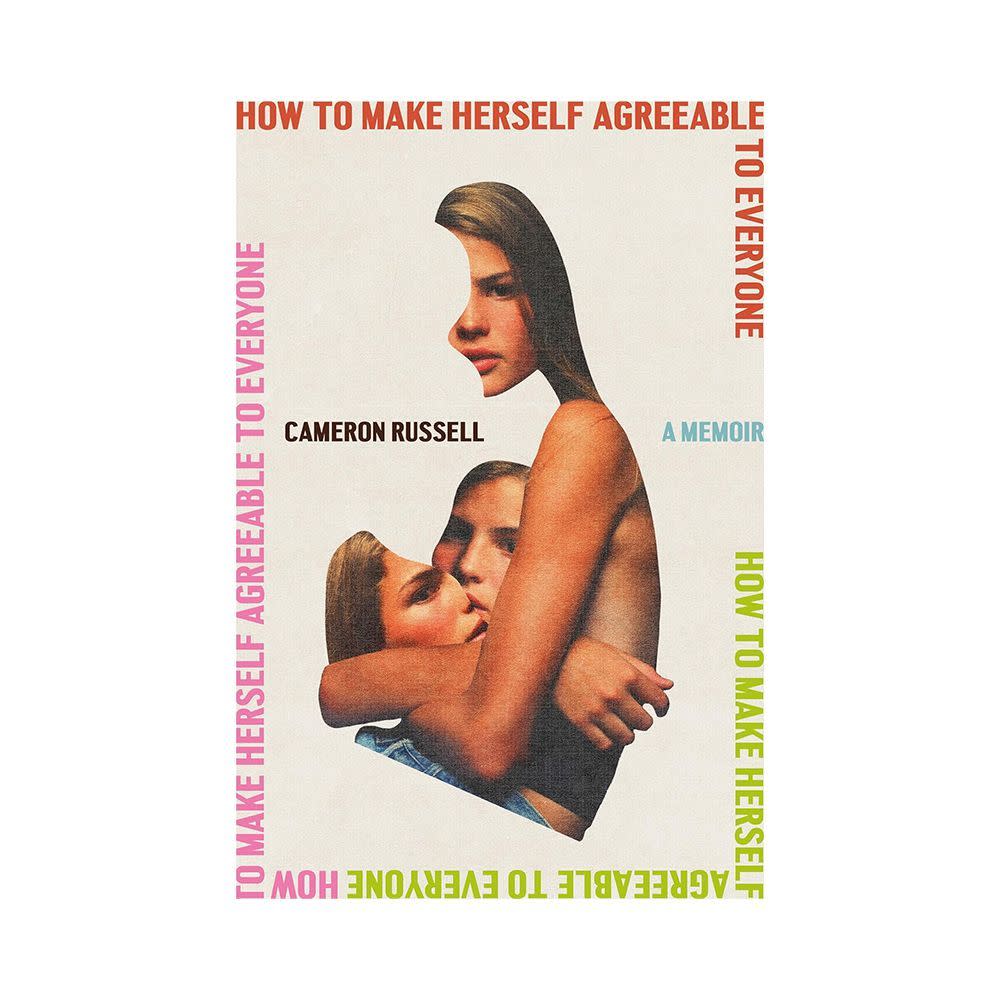
How to Make Herself Agreeable to Everyone by Cameron Russell
goodreads.com
$182.00
On publishing her memoir
“I’m just trying to return to that first moment when I was writing when I was like, ‘Maybe I should make this public.’ I am trying to get back in touch with why I wanted to do that. I wrote a lot of it—maybe half of it—almost five years ago. And then I wrote the rest in the beginning of the pandemic. And now I’m thinking, ‘How does this respond to this moment that we’re in? How is this working with what is happening?’ Like a lot of people, I go to work, I have to perform, and I go to bed. But then I think about all these things that I don’t bring into the workplace or into public, and this book was a place to put those things. Maybe it will be meaningful and feel like company for people who are also feeling that way.”
On support from other women
“The two moments that I could be one of the most public voices for my profession were when I gave the TED Talk and around the #MeToo movement. In both of those moments, I felt an enormous amount of support from behind the scenes.
“After the TED Talk, I remember people like Jamia Wilson, Jaclyn Friedman, Brittney Cooper—all these feminist media makers were like, ‘I see you,’ and when our paths crossed, they gave me such concrete, tangible guidance. I named three names, but if I sat down, I could come up with 35 people who did this for me. Having had that experience and knowing how valuable it is, it’s encouraged me to always show up for other people. No matter how public a person is or no matter how much support they may have, when you see them stepping out, you show up.”
On modeling as labor
“What I first thought was very unique to modeling is this idea that when people find out what my job is, they’re not like, “Oh, you work as a model.” They’re like, “You’re a model.” I think there’s something universal in that. My sister is a doctor, people are like, “She’s a doctor!” When we meet people, one of our first questions is, “What do you do?” And in our culture, that becomes who they are.
“I take issue with that. It’s a way of saying, ‘Because you are this thing, you have to embody this thing.’ No, that’s a performance. Yes, it’s a skilled performance, but to simply say that what we do is who we are removes some of the power from folks. If it’s who we are, then it’s easy. I don’t agree.”
On her role model
“My mom is a force. She is super adventurous. When I was a kid, whenever we were going anywhere, she always took me on the sneaky path. Even when I was three or four, she was taking me on two-mile walks. Every single day, she has that hunger. ‘How am I going to live today? How is this going to be an adventure?’
“I once asked my mom what was different about working in her twenties and thirties versus her forties and fifties, and she said she trusted her intuition more. It wasn’t that she couldn’t hear her intuition in her twenties and thirties, it’s just that she came to have more trust for it. Now at least when I don’t listen, I know I’m not listening to it.”
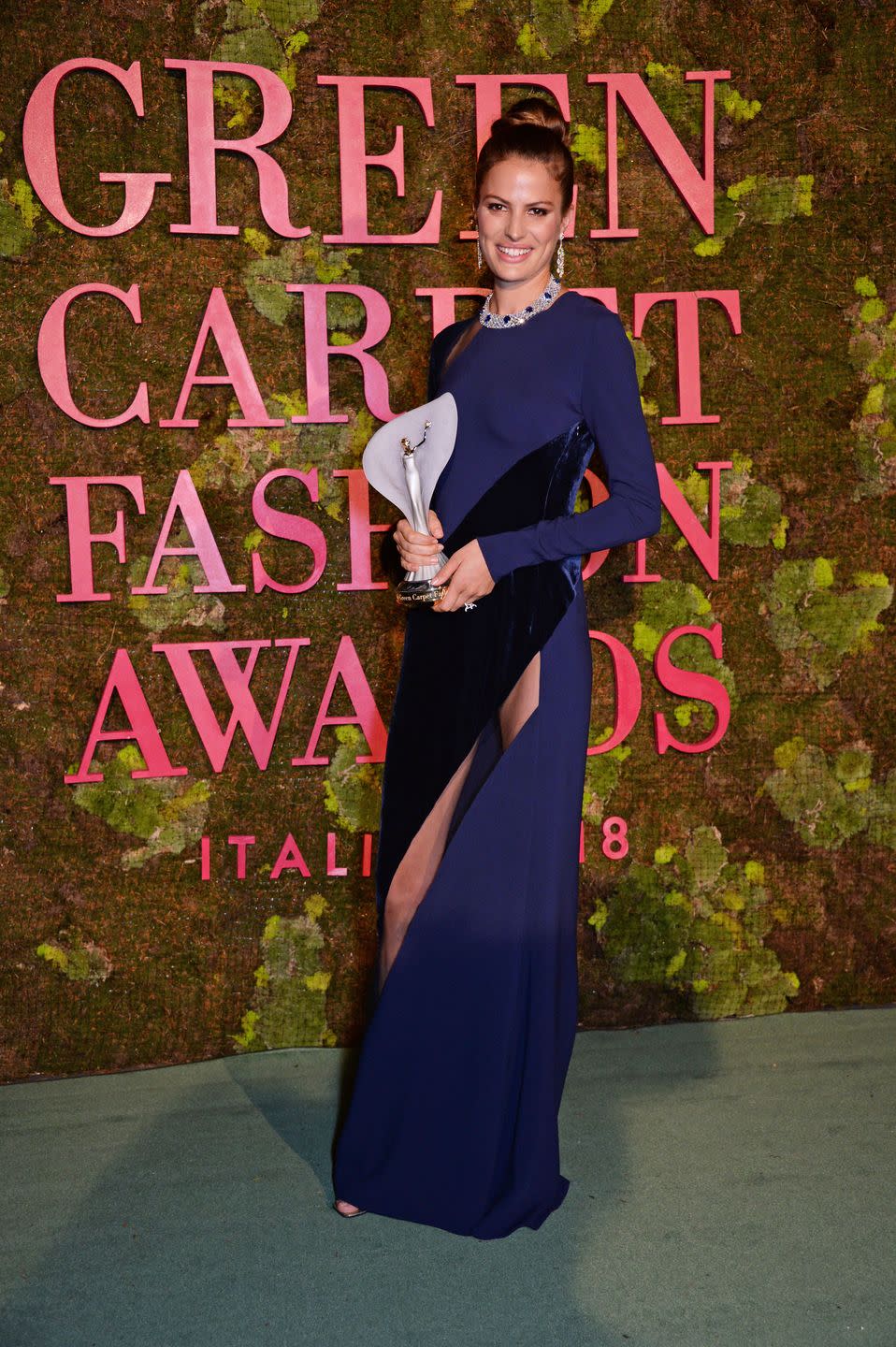
On measuring success
“There have been times in my career when I’ve been working almost every day, including weekends. I found it hard to get my footing because I would be offered a job and I would just think, how can I turn that down? I have to take it. That’s what success is. When I started writing the book, I was in Los Angeles for a job and I decided to extend the trip. I turned stuff down for two weeks to write and to think about the choices that I was making. It was confusing because at that point, folks were offering me a lot of money for these jobs. And in our world, money speaks really, really loudly. You start to think even if you don’t need this money, you’re so aware there is someone else who does. Those first two weeks felt really hard and obviously hard in the most privileged sense.”
On ambition
“I see ambition as building power with relationships. I think a lot of what matters is far from what our culture and economy value, and it’s so invisible in so many ways. I think it is really ambitious to show up for the people around you and that work is quiet. Checking in on people, making time to support people and have long conversations and cook food for people and take care of other people’s children and take care of your own children and take care of your parents—that requires so much ambition.
“But our culture isn’t sending us the right signals. My mom and my grandmother are not going to call me and be like, ‘Oh my gosh, congratulations. You woke up five times overnight with your two-year-old. You are doing it!’ They’re going to call me if I’m on the cover of a magazine. At the same time, our bodies know what is fulfilling. Our bodies know what feels liberating, what makes us feel loved and safe.”
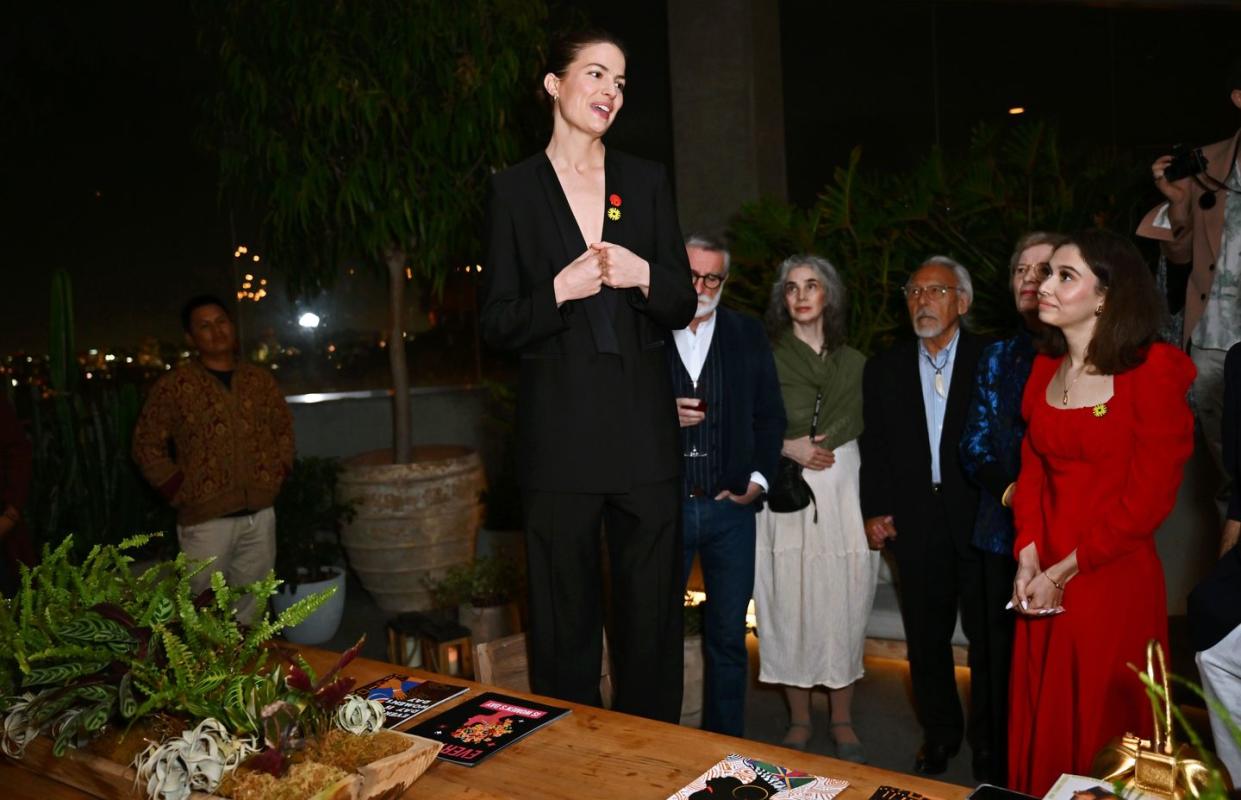
On fun
“There are so many things about fashion that are lovely and fun, and there’s so much about work that can be fun. A lot of that has to do just with the people who are together, being playful, being creative. We can be critical of a thing and still enjoy it. That goes for every other part of our lives so why not here?”
A version of this article appears in the April 2024 issue of ELLE.
You Might Also Like
